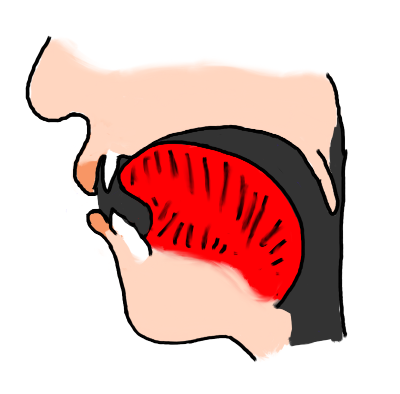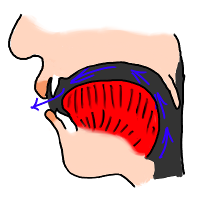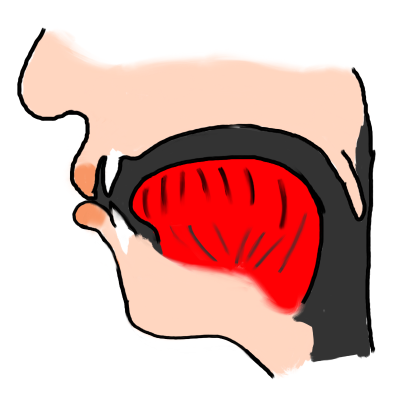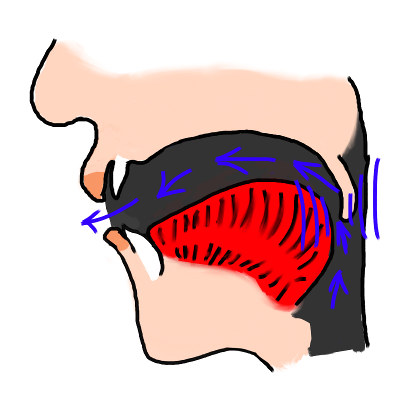How to pronounce poivre
Do you find the information below useful? If you do, you can get guides like it for 1,000+ French words by downloading this app for your iPhone or iPad.
| l |  | The French 'l' is similar to the 'l' in English "with Lee". The tongue tip usually touches the back of the upper teeth. It is also a so-called "clear" l: in other words, you don't raise the back of your tongue as you pronounce the French 'l', as occurs in some cases in English. | |
| ə |  | The 'schwa' or 'neutral e' is pronounced with the tongue in a "central, relaxed" position and the mouth also in a 'half open, relaxed' position. Note that many French speakers actually tend to pronounce this vowel as a 'close eu' vowel (as occurs at the end of words ending in -euse), or at least with some rounding of the lips. | |
| p |  | A French 'p' is generally pronounced in a similar way to an English 'p' in "spit", "sport" etc. In other words, it is not usually followed by a "strong burst of air" (aspiration) as in the 'p' sound of English "pit", "port" etc. If you are a native English speaker, put your hand in front of your mouth while you say "port" then "sport"; you'll feel a stronger breath of air with the first of these words. When you pronounce a French 'p' sound, you do so as in the second of these words, so that you don't hear or feel the strong breath of air. | |
| w |  | This is a sound a little like an English "w", where you glide rapidly between a French 'ou' vowel and another vowel. When a French 'ou' vowel is followed by another vowel, the 'ou' usually automatically turns into this glide. | |
| a |  | The French 'a' vowel is pronounced with the tongue far forward in the mouth and the mouth quite wide open, but not quite as open as for a typical English 'a' vowel. | |
| v |  | The French 'v' sound is pronounced in a similar way to English 'v'. | |
| ʁ |  | The French 'r' is generally what is technically called a "uvular fricative". In simple language, that means you bring the back of your tongue close enough to the back of the mouth that it causes friction (the "raspy" sound that you hear) with the escaping air. |